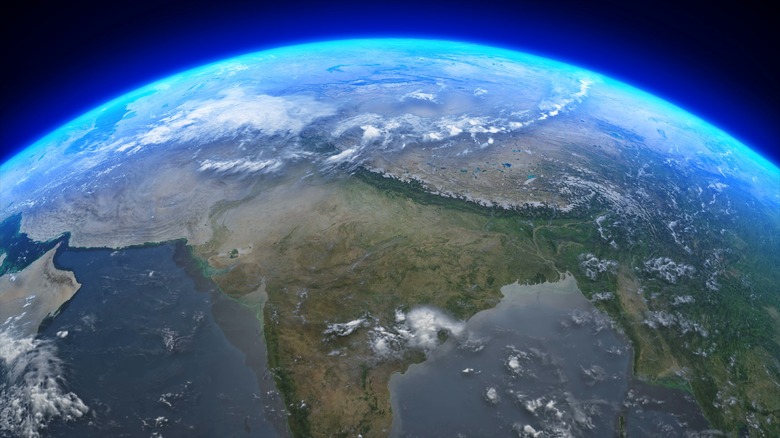The 5 Biggest Science Stories To Look Out For In 2019
Whether you follow climate change, love keeping up the newest exploration into space or feel fascinated by advances in health research, the coming year has something that'll capture your attention. Watch out for these top stories and research advances in 2019 that are sure to enhance our understanding of our planet, our universe and ourselves.
1. The Redefined SI Units Come Into Effect
1. The Redefined SI Units Come Into Effect
Meters, liters and kilograms – you've seen 'em all in your chemistry and physics classes and know them well....right? Well, come May 2019, all seven metric base units (meters, kilograms, amperes, seconds, kelvins, moles and candelas) will have new definitions, related to constants found in nature. For example, a meter will be defined by its relation to the speed of light.
You can read all about the new changes here – and stay tuned for a primer from Sciencing before the new definitions come into effect!
2. We Might See the First Universal Flu Vaccine
2. We Might See the First Universal Flu Vaccine
Let's face it: Flu season is the worst. And while getting the flu shot is important, especially if you come into contact with vulnerable people (like the elderly), it's not 100 percent effective for preventing the flu. That's because scientists develop the vaccine against flu strains they think will be most common in the coming flu season – but, of course, they don't always guess right. As the CDC explains, the flu vaccine lowers your risk by 40 to 60 percent, it doesn't eliminate it entirely.
But 2019 could mean the release of a new, universal vaccine that's effective for virtually any flu virus – which means it could be a lot more effective for preventing the flu. The vaccine entered phase 3 clinical trials in November 2018 – and if the FDA approves it after the trial, it will be available to the public.
3. Genetically Modified Mosquitos Will be Released in Africa
3. Genetically Modified Mosquitos Will be Released in Africa
You've heard of genetically modified crops – but genetically modified bugs? That's a pretty new one. But it's a big step forward in addressing public health crises like malaria, which is transmitted from person to person by mosquitos.
As Science Magazine explains, the mosquitos are genetically modified to cut off their reproductive ability – so, generation over generation, fewer mosquitos capable of transmitting the virus that causes malaria should survive.
This year's early trial will simply release sterilized males to see how they impact the environment. If the experiment goes well, it could mean the release of more genetically modified mosquitos, and another step toward eradicating the malaria epidemic.
4. Astronomers Could Finally See the Event Horizon of a Black Hole
4. Astronomers Could Finally See the Event Horizon of a Black Hole
If you follow space news, 2019 has already been a pretty big year. Last week, we reported that NASA released images of Ultima Thule, the most distant object photographed in space so far.
But advances in space exploration never stop, and scientists may "see" into a black hole for the first time ever. NASA's Event Horizon Telescope will be able to capture images of Sagittarius A, a black hole at the center of our galaxy. Specifically, NASA will image Sagittarius A's event horizon – the theoretical "point of no return" from which light cannot escape.
And that's a big deal. As Forbes explains, it would take a telescope as big as planet Earth to gather enough light to "see" into a black hole. Since that's obviously not possible, scientists will use a series of images from eight telescopes, located around the world, to create one set of composite images of the black hole.
Seeing where no light theoretically exists? Pretty cool!
5. The Ongoing Effects of Climate Change
5. The Ongoing Effects of Climate Change
No science news list would be complete without a mention of climate change and, well, 2019 is a big year for studying our changing planet. Specifically, scientists are working on ways to determine how extreme weather events – like heat waves or hurricanes – are affected by climate change more quickly. That would make it easier to study how climate change really affects our planet – and predict how future climate change could cause even more extreme weather.
There's also more out-there climate change science, like the possibility of using reflective aerosols to actually reflect the sun's light back out into space, theoretically cooling our planet. And scientists will also look at how polar warming affects other areas of the globe – how warming in the arctic might mean more snowfall in the States, for instance.
References
Cite This Article
MLA
Tremblay, Sylvie. "The 5 Biggest Science Stories To Look Out For In 2019" sciencing.com, https://www.sciencing.com/the-5-biggest-science-stories-to-look-out-for-in-2019-13716460/. 8 January 2019.
APA
Tremblay, Sylvie. (2019, January 8). The 5 Biggest Science Stories To Look Out For In 2019. sciencing.com. Retrieved from https://www.sciencing.com/the-5-biggest-science-stories-to-look-out-for-in-2019-13716460/
Chicago
Tremblay, Sylvie. The 5 Biggest Science Stories To Look Out For In 2019 last modified August 30, 2022. https://www.sciencing.com/the-5-biggest-science-stories-to-look-out-for-in-2019-13716460/
